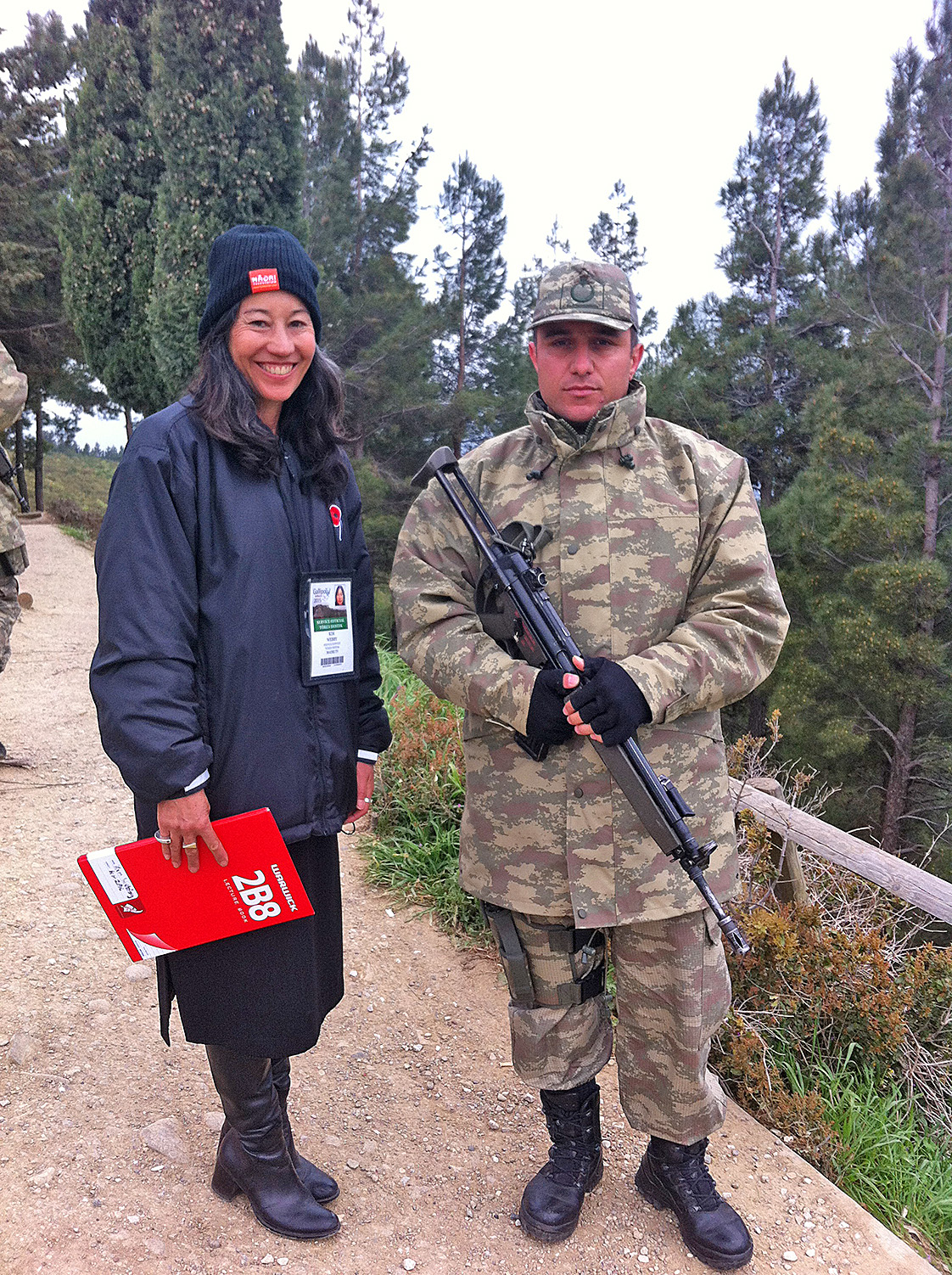Anzac Day - we shall not forget

.
This Anzac Day, and as we commemorate the 110th anniversary of the Gallipoli campaign, war continues to claim and blight the lives of millions of people worldwide. The war to end all wars sadly did no such thing, says Eastern Bay filmmaker Kim Webby.
. Gallipoli, in particular, holds a special place in the hearts of New Zealanders.
It’s where 2779 of us died and another 5212 Kiwis were wounded in 1915, during World War I.
Ten years ago, I had the privilege of producing stories and the broadcast from Gallipoli for Whakaata Māori (Māori Television), for the 100th anniversary.
My memories from there remain etched in my heart.
A few days before Anzac Day in 2015, broadcaster Judy Bailey was to interview renowned Kiwi war historian Christopher Pugsley.
He asked us to meet him just below the summit of Chunuk Bair, in what had been thick scrub and bush.
For the 100th anniversary, Turkish authorities had the area cleared and you could see the foxholes, in a place the size of a football field.
It was where the Wellington Infantry Battalion had fought valiantly, but forlornly on August 8, 1915.
Of their 760 men, just 70 came away unscathed or only slightly wounded.
Chunuk Bair was the Māori Contingent’s first official offensive.
A quarter of the men were casualties, made up of 17 dead, 89 wounded and two missing. The Māori soldiers were highly praised by all.
As we stood on this sacred ground, the tears flowed freely as Christopher Puglsley related the grim story.
And during the pomp and ceremony of the Anzac service a few days later, Judy and I returned to that spot for quiet contemplation and to pay our respects to all those who died there.
The soldiers of the Ottoman Empire, today known as Turkey, lost 86,692 men at Gallipoli alone, with another 164,617 wounded.
That is far greater than half of the total casualties at Gallipoli.
The steep hillside below Chunuk Bair has again revealed its sorrow.
In August last year, wildfire and rain uncovered the remains of some of the fallen.
Our New Zealand Defence Force staff, in Gallipoli to prepare for this year’s service, helped to rebury the remains in a dignified ceremony with karakia, a reading of The Ode and the Last Post.
While the bones of our men remain there, our connection with Gallipoli will endure.
Having stood on that ground, I feel only peace and gratitude knowing that those men lie with their brothers in arms. Even though they’re far from home, they are not alone.
This year, our government has changed the definition of who is a veteran, but it has not broadened the eligibility for veterans’ support entitlements.
This move came after VC recipient Willie Apiata handed over his Victoria Cross at Whakatāne RSA, to Veterans Minister Chris Penk.
It was part of Apiata’s long standing campaign to widen the definition of who has the right to be called a veteran.
Up until a couple of weeks ago, a veteran was deemed to be someone who had completed Qualifying Service within the New Zealand Defence Force, either in deployments where there was significant risk or harm, or in routine service before ACC was introduced in 1974.
This is still the requirement for veterans’ support entitlements. But now, the term veteran will extend to another 100,000 people, encompassing all former NZDF personnel with the Defence Service medal, acknowledging at least three years of service.
Warrant Officer Apiata is reported as saying that the old definition split servicemen and women into two people’s when they should be one, because they all gave one service, whether at home or abroad.
Former army general and former Governor General of New Zealand, Jerry Mateparae, chairs the Vietnam Veterans and their Families Trust.
He believes that service is much more than going off and fighting in conflicts and wars offshore.
It’s also about helping New Zealanders here at home. He too thinks they all deserve recognition as NZ Defence Force veterans.
Others spoken to at a Vietnam Veterans Reunion last November had mixed views.
In the words of one veteran, “My feeling is a veteran served his country overseas. That’s my definition, someone like me who’s been in the jungle, served in Vietnam and Malaya and did my duty as far as country is concerned.
“Anything other than that definition to me is pakaru.”
Personally, I am not qualified or even entitled to hold an opinion on who is a veteran. Only those who served their country can draw that distinction.
This Anzac Day once again, we shall not forget.
